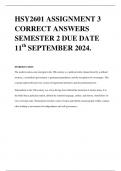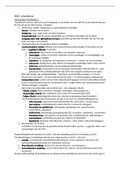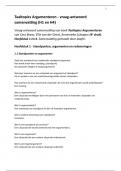Exam (elaborations)
HSY2601 ASSIGNMENT 3 CORRECT ANSWERS SEMESTER 2 DUE DATE 11th SEPTEMBER 2024.
- Course
- HSY2601
- Institution
- University Of South Africa
HSY2601 ASSIGNMENT 3 CORRECT ANSWERS SEMESTER 2 DUE DATE 11th SEPTEMBER 2024. INTRODUCTION The modern nation-state emerged in the 19th century as a political entity characterized by a defined territory, a centralized government, a permanent population, and the recognition of sovereignty. This...
[Show more]






